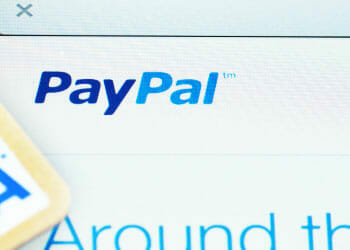The Internet is rife with tales of people being victimized by one email scheme or another. If you haven’t received the, “I need your bank account information” email, then you most likely don’t have email, a computer, a blender, or a microwave.
Have you received the, “1,000,000,000 Winner in the UK Lottery” email? Check.
Have you received the, “I’m lost in Europe and need money to get out” email? Check.
What does this have to do with PayPal? Well, nothing really. But we are trying to paint the picture of the Internet being a scary place sometimes. So scary that emails like the examples above make people afraid to make purchases through legit online businesses like yours. Five years ago, giving “Frank’s Online Halloween Costume and Watch Emporium” your credit card info to buy some fake vampire blood and a new Rolex wouldn’t have been much of a challenge. Today, not so much.
Are you scared yet? You should be! Just kidding. But seriously. PayPal rocks. If you aren’t using it, then you need to keep reading.
PayPal is a payment processor that’s easy to integrate and ultra-secure. PayPal is a popular choice for small businesses who are hocking goods online but don’t do enough volume to warrant a full merchant account. Plus, it’s easy to integrate and ultra-secure. Whoa… DejaVu.
Because PayPal is a popular choice among smaller organizations, larger companies have frowned upon it, citing that it’s unprofessional. They may see PayPal integration as saying something like, “Hey. We are too small to process our own credit cards so you shouldn’t trust us with your business.” Totally not the case.
Over the past few years, this view of “PayPal Small / Me Big” has fallen out of favor; even the largest online retailers, e.g. Amazon and Zappos, now accept PayPal. In fact, it’s accepted at checkout for many brick-and-mortar stores like Home Depot and Best Buy. We love the Home Depot! Don’t you? Maybe you are a Lowes aficionado. Well…they use it, too!
For the call center folk reading this, why not use it as a payment option for your customers? Even if your business has a traditional merchant account, you should still consider offering PayPal as a payment method. If you have doubts about the service’s appropriateness for your business, please keep reading.
Glad you are still with us! Your company should consider accepting payments through PayPal because:
It is easy to get started taking payments.
Smaller companies that are processing their bills through QuickBooks or some other system may just want an easier way for customers to manage their bills online. If you need a way to be paid through your website ASAP, you can sign up at paypal.com and, minutes later <BAM> be able to receive payments. Processing fees average around 3% per transaction. Also, depending on the types of features you need, there might not be any monthly fees to use the service. PayPal simplifies customer care and lends a helping hand to your accounts receivables department.
PayPal will be popular among your customers because (chances are) they already use it.
If you are breathing, you probably have a PayPal account. It’s a familiar service to most human beings. Have you heard of WebMoney or Skrill? They are services like PayPal, but you probably don’t recognize them. The point is PayPal is pretty universal.
If you find a customer here or there who doesn’t have a PayPal account, the service can also act as a regular old credit card processor for Visa, MasterCard, American Express, and Discover Card, among others. The cardholder does not have to register with PayPal to make purchases; they just need a valid credit or debit card.
It is versatile and accessible.
If you offer PayPal along with other payment methods, you’re in good shape. This will make your company appear more flexible and accessible to anyone who wishes to do business with you. It’s kind of like an approachable contortionist.
And now…the conclusion of our story.
Doing everything you can to ensure an effortless experience for the customer from minute one is the hallmark of great customer service. If your answering service accepts PayPal, establishing new accounts and setting up pre-approved payments is a breeze. If not, you may lose customers faster than you acquired them.
Yep, there they go. Oh no! Too late. You lost them.
For the value, speed, and accessibility, it makes sense to have PayPal as an alternative payment channel for your small business – even if you only use it occasionally. Need more convincing? Just check out our simple math below:
Conclusion: Paypal = Easy + Trusted // You = Should be Using It
